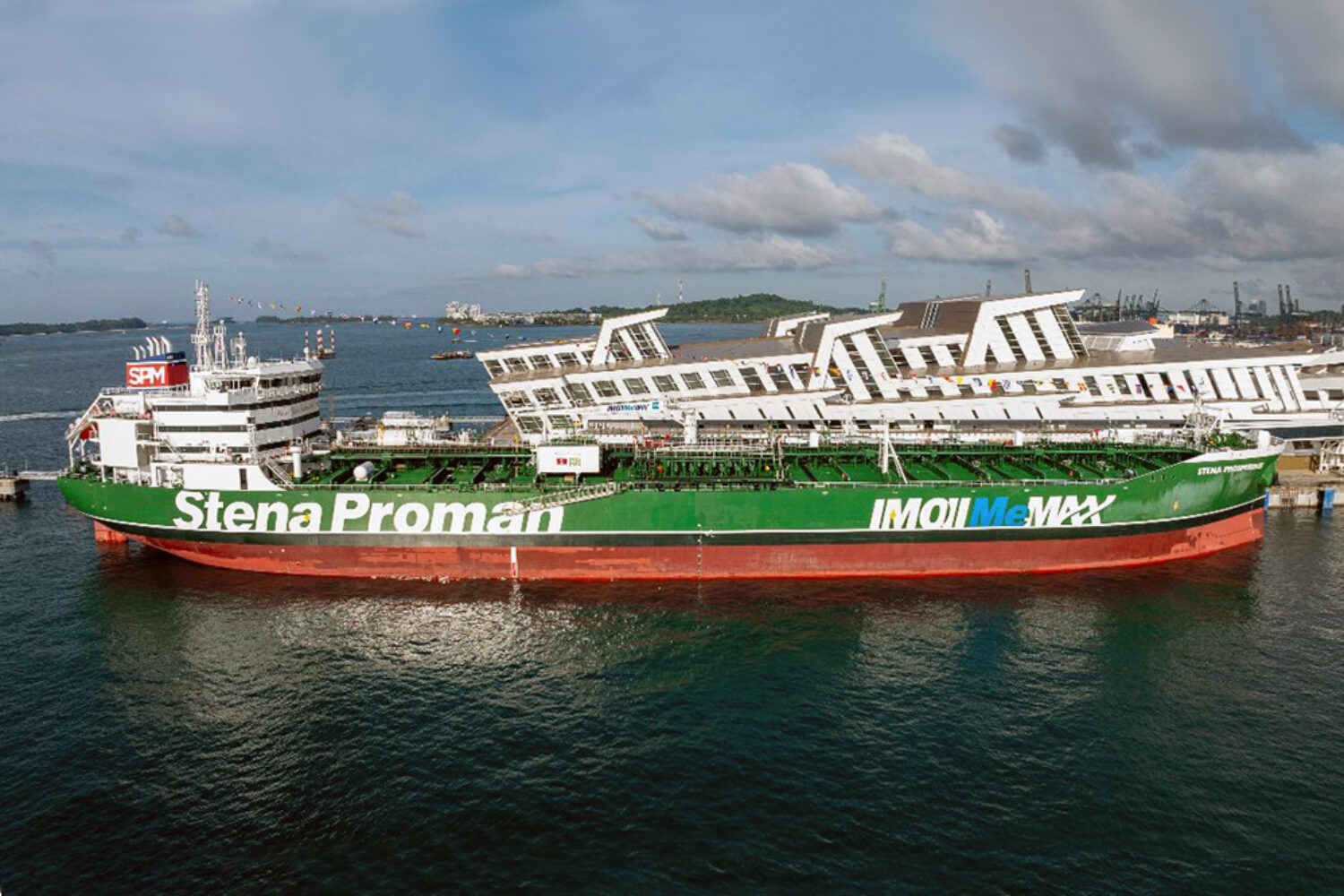With the christening of its sixth ship, Proman Stena Bulk, the joint venture between leading tanker company Stena Bulk and leading methanol producer Proman, is completing its series of methanol tankers, which also use methanol as a fuel.
The “Stena Prosperous” was christened at the Marina Bay Cruise Center in Singapore. According to Proman Stena Bulk, the 49,900 DWT IMOIIMeMAX vessel will be refuelled with a 20/80 methanol blend of green and conventional methanol after the christening. Compared to a voyage powered by Very Low Sulphur Fuel Oil (VLSFO), this should enable CO2 savings of 31% and, at the same time, achieve additional savings in particulate matter, sulphur oxides (SOx) and nitrogen oxides (NOx). [ds_preview]
According to the shipping company, the mixture leads to a reduction in greenhouse gas emissions that is below the target required by Fuel EU Maritime for 2025, which further underlines the suitability of methanol as a fuel for shipping.
The “Stena Prosperous” is the last of six vessels in Proman Stena Bulk’s joint venture fleet to be officially christened. The six methanol-powered tankers were ordered in 2019, and the first vessel was delivered in June 2022. Two of the vessels are on long-term time charters “to give the market the opportunity to gain more extensive operational experience with methanol as a marine fuel,” according to a statement.
With four of the vessels in operation throughout 2023, Proman Stena Bulk was able to track and assess the emissions performance of its fleet. According to the shipping company, this analysis shows that the greenhouse gas emission savings for a full year on a tank-to-wake basis are around 5,500 tons when the four vessels run on methanol instead of VLSFO.
In addition, the ships would have demonstrated market-leading operational efficiency as measured by the IMO’s Energy Efficiency Design Index (EEDI) methodology. For example, the Stena Pro Patria has demonstrated an operational performance 11% above the IMO target for 2025, setting a new benchmark for the efficiency of methanol-powered tankers.













